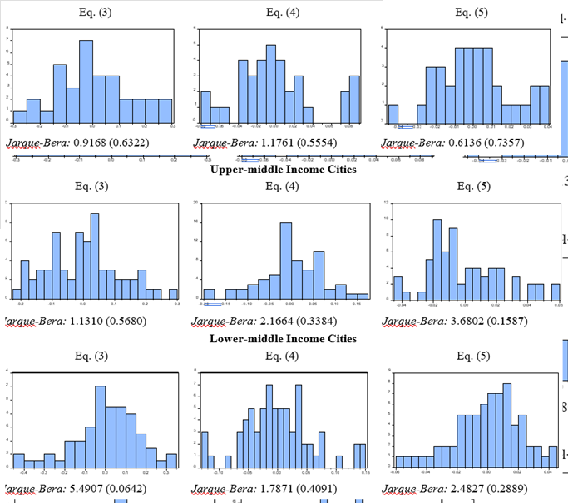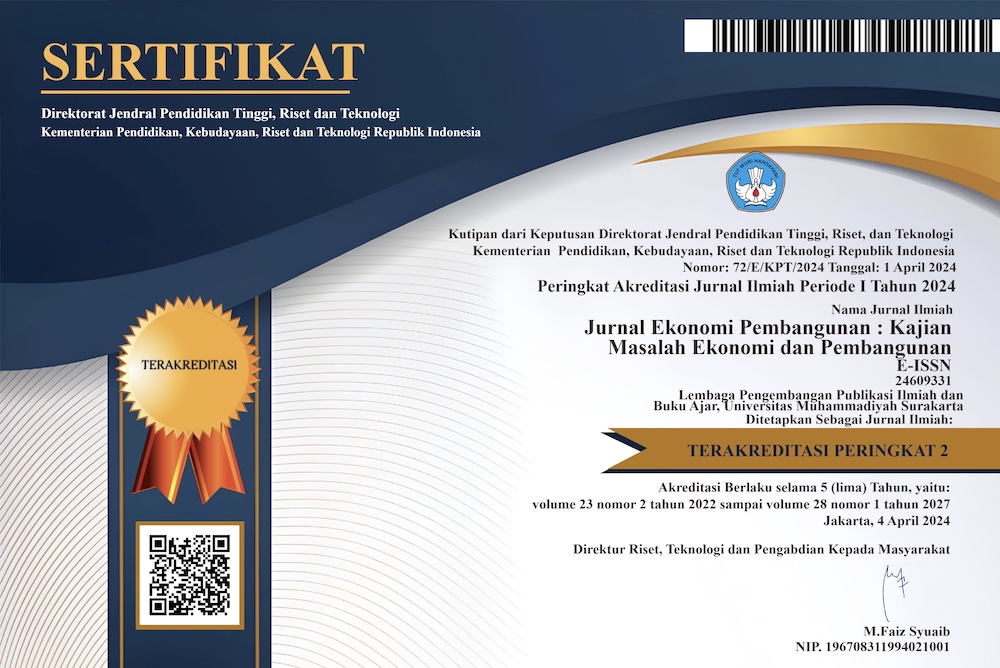The Linkage Among Economic Growth, Education and Health: Empirical Study in Java Island
DOI:
https://doi.org/10.23917/jep.v24i1.20194Keywords:
Economic growth, Human capital, Simultaneous equation modelAbstract
Java Island accounts for more than half of Indonesia’s gross domestic product (GDP), hence it is where the majority of economic activities are concentrated, even though mostly of those major contributions are from certain cities. However, the quality of education and health shown by average years of schooling and life expectancy at birth in Java Island is unevenly distributed when compared with economic growth. This research aims to analyze the causalities and effects of economic growth, education, and health using simultaneous equations models on panel data that consists of 34 cities in Java Island spanning from 2015 to 2019, which are decomposed into three income classifications. Results indicate positive and significant effect from education toward economic growth on every income level. Health instead only brings positive and significant effect toward economic growth in high-income cities. Economic growth affects education positively in upper-middle and lower-middle income cities, and affects health positively only in upper-middle income. Ultimately, the relationship between education and health shows that they have positive and significant effects on each other and are consistent across all income groups.
Downloads
















